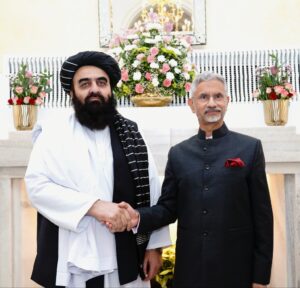How

Junk Food Leads to Obesity and Lifestyle Diseases.
By Tyima Bilal, Medical Student
In today’s fast-paced world, where taste often triumphs over nutrition, junk food has quietly become one of the leading causes of obesity and lifestyle-related diseases. As a medical student, I’ve learned that the relationship between food and health goes far deeper than calories, it’s a complex biochemical interplay that determines how our body functions, stores energy, and fights disease. Unfortunately, junk food disrupts this balance at every level.
The Composition of Junk Food, A Hidden Chemical Trap
Junk foods are engineered to please the tongue but poison the body. They are high in refined carbohydrates, unhealthy fats, sugars, and sodium, while lacking essential nutrients, fiber, and proteins. These ingredients don’t just fill the stomach, they interfere with the body’s metabolic pathways. Refined sugars rapidly increase blood glucose levels, forcing the pancreas to release large amounts of insulin. Over time, this repeated stimulation leads to insulin resistance, a major cause of type-2 diabetes and obesity. Similarly, trans fats found in fried and processed foods raise LDL (bad cholesterol) and lower HDL (good cholesterol), increasing the risk of cardiovascular diseases. Excess sodium contributes to hypertension, putting unnecessary strain on the heart and kidneys.
The Science Behind Weight Gain
Obesity isn’t just about eating more; it’s about what we eat and how our body processes it. Junk food disrupts the natural hunger-regulating hormones, leptin and ghrelin. Leptin signals fullness, while ghrelin stimulates appetite. The high sugar and fat content in junk food confuses these hormones, causing overeating even when the body doesn’t need energy.Moreover, these foods are low in dietary fiber, meaning they don’t promote satiety. The result is frequent snacking, excessive calorie intake, and fat accumulation, especially visceral fat, which surrounds vital organs and increases the risk of heart disease, fatty liver, and metabolic syndrome.
The Dopamine Trap, Food Addiction and Cravings
From a neurological perspective, junk food behaves like a mild addictive substance. The combination of sugar, fat, and salt triggers a release of dopamine in the brain’s reward centers, the same chemical released during addictive behaviors. Over time, the brain develops tolerance, requiring more junk food to achieve the same level of satisfaction.This explains why people often crave fast food even when they aren’t hungry. It’s not hunger; it’s neurochemical dependency. This cycle of craving and consumption leads to psychological stress, emotional eating, and long-term metabolic damage.
Metabolic Syndrome, The Silent Outcome
Chronic consumption of junk food contributes to a cluster of disorders known as Metabolic Syndrome, which includes:
Abdominal obesity
High blood pressure
Elevated fasting glucose
High triglyceride levels
Low HDL cholesterol
Metabolic syndrome greatly increases the risk of stroke, heart attack, and type-2 diabetes. What’s alarming is that it’s no longer limited to adults, even teenagers and children are showing signs of insulin resistance and fatty liver disease due to regular junk food intake.
Inflammation and Cellular Damage
The trans fats and processed sugars in junk food trigger chronic low-grade inflammation in the body. Inflammation damages the endothelium (the inner lining of blood vessels), promotes plaque buildup, and impairs tissue repair. Free radicals generated by these foods cause oxidative stress, which accelerates cellular aging and increases the risk of cancers and neurodegenerative disorders. As medical student , when we study pathology, it becomes evident how diet influences disease progression. What starts as mild obesity often advances to conditions like non-alcoholic fatty liver disease (NAFLD), atherosclerosis, and polycystic ovarian syndrome (PCOS), all directly linked to poor dietary patterns.
Lifestyle Diseases, A Preventable Epidemic
The term lifestyle disease refers to illnesses that result from daily habits, and junk food lies at their core. Sedentary lifestyles, stress, and poor diet together form the “unholy trinity” of modern health problems. Instead of nutrients, our bodies receive toxins; instead of energy, we gain fatigue.Cardiovascular diseases, diabetes, hypertension, and even some cancers are not mere coincidences, they are consequences of sustained neglect toward nutrition. Medical evidence clearly shows that reducing junk food intake and switching to whole, unprocessed meals can reverse many early-stage lifestyle diseases.
The Emotional and Social Aspect
Beyond the physical impact, there is an emotional dimension to this problem. In hospitals, I’ve seen patients struggle to come to terms with lifestyle-induced diseases. It’s heartbreaking to see someone in their thirties or forties being told they have chronic diabetes or heart disease, conditions that could have been prevented with mindful eating.Junk food not only harms individuals but burdens families, healthcare systems, and society. The temporary joy of taste becomes a long-term trade-off with pain, medication, and regret.
A Call for Awareness and Responsibility
As medical students and future healthcare professionals, it’s our responsibility to spread awareness that prevention is better than cure. We must advocate for balanced diets rich in natural, unprocessed foods, fruits, vegetables, whole grains, and lean proteins. Awareness campaigns, school programs, and community health talks can help young people understand how small food choices today shape their future health. Nutrition education should be a part of every medical and non-medical curriculum because healing begins not with medicine, but with prevention.
Conclusion, Health Begins on Our Plate
Our body is the only place we truly live in, yet we often treat it carelessly. Junk food may satisfy the tongue, but it starves the cells that keep us alive. Obesity and lifestyle diseases are not sudden outcomes; they are the cumulative result of everyday choices. As a medical student, I believe the greatest prescription is awareness. The simplest lifestyle change, saying no to junk and yes to wholesome food, can prevent years of suffering. Let us remember: Food can either be our strongest medicine or our slowest poison. The choice lies on our plate.


 Junk Food Leads to Obesity and Lifestyle Diseases.
Junk Food Leads to Obesity and Lifestyle Diseases.
